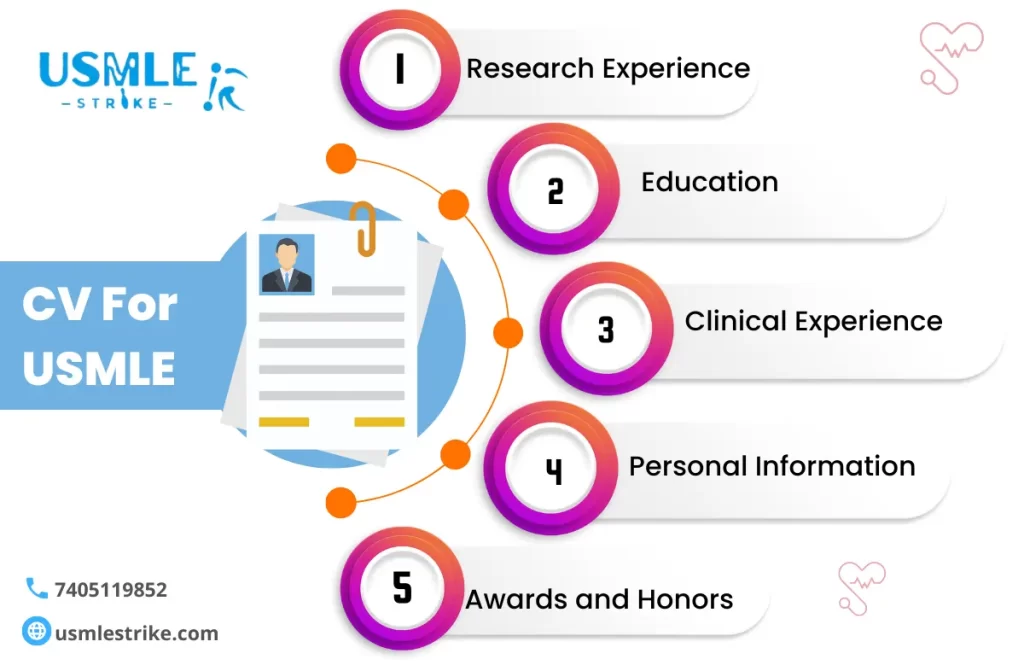When it comes to residency applications, your CV plays a crucial role in presenting your qualifications, experiences, and skills to program directors. Crafting a stellar CV for USMLE residency applications can significantly impact your chances of securing a spot in your desired program. Let’s delve into the key aspects of CV editing for residency applications, focusing on optimizing your CV.
Understanding the Importance of a CV for USMLE
A CV for USMLE application process is crucial as it presents a comprehensive overview of a candidate’s educational background, clinical experiences, research activities, and achievements in medicine. This document helps residency program directors assess an applicant’s qualifications and potential fit within their program.
A well-crafted CV for USMLE can highlight the applicant’s strengths, demonstrate their commitment to medicine, and showcase relevant experiences that align with the specific demands of the residency they are applying for. By effectively summarizing their professional journey, applicants can make a compelling case for their candidacy, increasing their chances of being selected for interviews and securing a residency position.

Understanding the Importance of a Well-Crafted CV
Professional CV Structure
- Start with your contact information: Ensure your name, phone number, email address, and professional social media profiles are clearly listed.
- Objective statement or personal statement: Highlight your career goals and what makes you a unique candidate.
- Education: List your medical school, any relevant coursework, honors, and awards.
- Clinical experience: Detail your clerkships, internships, and any hands-on patient care experience.
- Research experience: Highlight any research projects, publications, or presentations.
- Extracurricular activities: Include any leadership roles, volunteer work, or involvement in professional organizations.
- Skills: Showcase relevant skills such as languages spoken, medical software proficiency, or certifications.
By following this professional CV structure, you can effectively organize and present your qualifications and experiences in a way that grabs the attention of residency program directors and sets you apart as a top candidate for USMLE residency programs.
Common Mistakes in CV
Crafting a CV for USMLE residency applications requires attention to detail to ensure it effectively represents your qualifications and experiences. Here are some common mistakes:
Dos
- Tailor your CV for each residency program you apply to.
- Use language that is clear and concise, and avoid jargon or overly technical terms.
- Be sure to proofread carefully to ensure that there are no typos or grammatical errors.
- Quantify achievements where possible (e.g., number of patients seen, research funding secured).
- Seek feedback from a mentor, a colleague, or a professional editor.
Don’ts
- Include irrelevant personal information or hobbies.
- Use generic or cliché statements in your objective or personal statement.
- Exaggerate or fabricate experiences or skills.
- Use fancy fonts or colors that may distract from the content.
- One of the common mistakes in CV is to neglect to update your CV regularly with new experiences or accomplishments..
By adhering to these do’s and don’ts, you can avoid common mistakes in your CV and present yourself as a strong and qualified candidate for USMLE residency programs. Customize your CV, use clear language, quantify achievements, proofread carefully, seek feedback, and keep it updated to maximize its impact on program directors.
Structure of an ERAS CV Format:
You need to know the ERAS CV Format. The formatting and structure of your ERAS CV are crucial for readability and impact.
- Use a clear and professional font, such as Arial or Times New Roman, with a font size between 10 and 12 points.
- Maintain consistent formatting throughout the document, including headings, bullet points, and indentation.
- Use concise and specific language to describe your experiences and achievements.
- Keep your CV to a maximum of two pages, excluding references.
- Proofread your CV thoroughly to eliminate any grammatical or spelling errors.
- Use section headers and subheadings to delineate different sections of your CV.
- Include your name and page number as a header or footer on each page.
- Save your CV as a PDF to preserve formatting and ensure compatibility across devices.
Sample CV for USMLE Residency
Creating an Effective Sample CV for USMLE Residency
- Start by creating a header with your name and how to contact you.
- Write a concise objective or personal statement that reflects your career aspirations.
- Organize sections logically in your CV for USMLE, starting with education and progressing to clinical experience, research, and extracurricular activities.
- Within each section, use bullet points to highlight key responsibilities and accomplishments.
- Keep formatting consistent throughout the document for a polished appearance.
Tips for Writing a Standout ERAS CV
Here are concise tips for crafting a standout ERAS CV for USMLE:
- Start with a strong personal statement.
- Focus on relevant experiences and achievements.
- Include metrics to quantify accomplishments.
- Detail clinical experiences with specific roles and skills.
- Highlight research experience, publications, and presentations.
- List educational background, including honors and awards.
- Include relevant extracurricular activities and volunteer work.
- Mention professional affiliations and memberships.
- Add skills and certifications pertinent to the medical field.
- Proofread multiple times to ensure accuracy.
- Follow ERAS formatting guidelines closely.
Conclusion
Crafting a compelling CV for USMLE residency applications is a critical step in showcasing your qualifications and experiences to program directors. By adhering to a CV structure, avoiding common mistakes, and utilizing a sample CV residencies as a guide, you can enhance your chances of standing out in a competitive applicant pool. Start editing your CV today to make a lasting impression on residency program directors.
Read also: Step 2 CK Rapid Review





